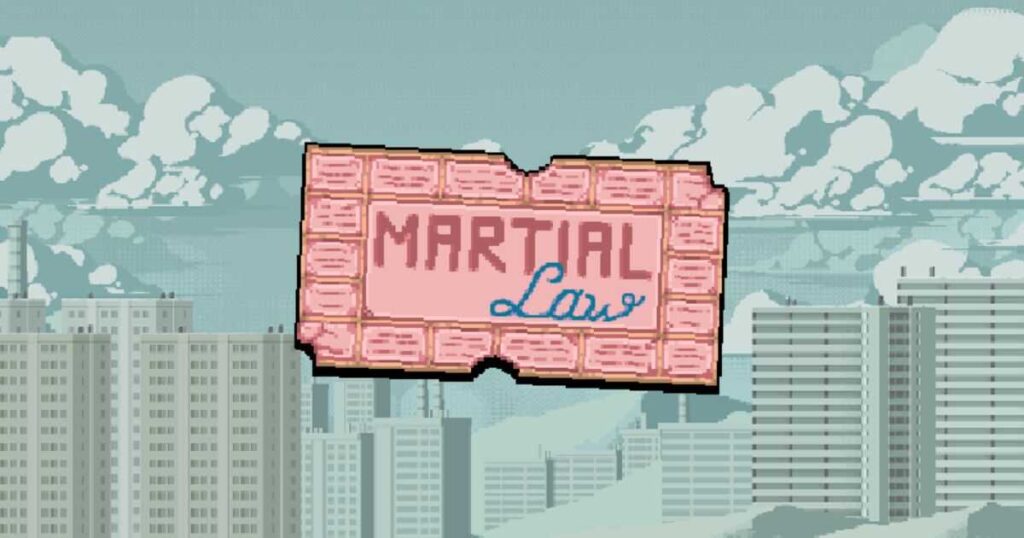Martial law is military control over civilian areas during national emergencies. It replaces regular government with military authority and aims to restore order during critical situations. Martial law is a temporary measure where military authorities take control of governing a region usually during times of extreme crisis.
When martial law is declared, military commanders gain extraordinary powers. They can restrict freedoms, impose curfews, and make immediate decisions. Citizens’ normal legal protections are temporarily suspended.
Martial law can deeply impact society. It limits personal freedoms and increases government control. While sometimes necessary, it remains a controversial method of managing national crises.
Why Korea Martial Law
South Korea’s martial law emerged from decades of political turbulence and authoritarian control. Military leaders used national security fears to justify strict governmental control during the Cold War era. The country experienced repeated periods of martial law, particularly under President Park Chung-hee’s regime from 1961 to 1979.
Political dissent was ruthlessly suppressed, with military leaders claiming they were protecting the nation from communist threats. These martial law periods were characterized by widespread censorship, restrictions on civil liberties, and aggressive state control.
South Korea Why Martial Law
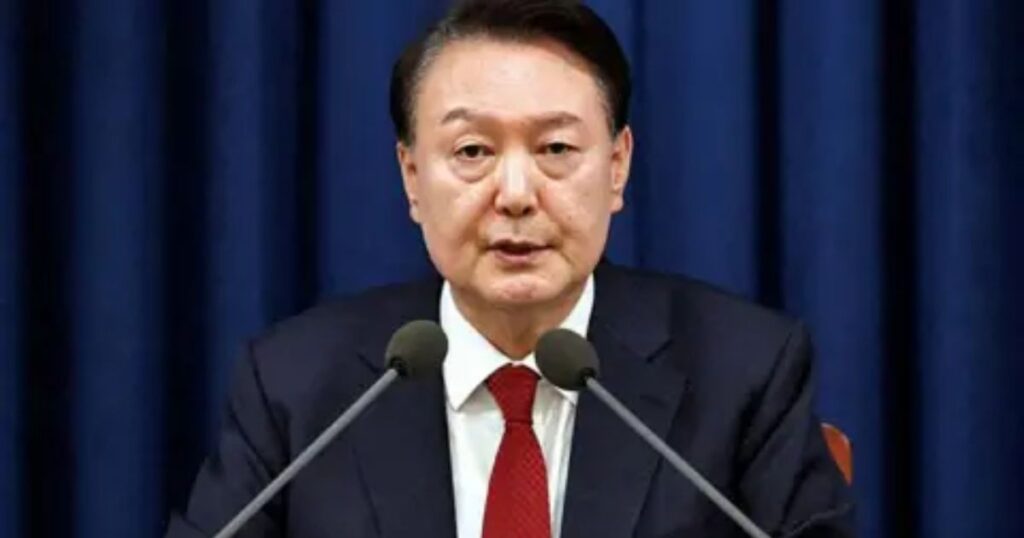
South Korea has experienced martial law during periods of significant political turbulence, particularly during the mid-20th century when authoritarian leaders sought to maintain control during times of internal instability. Implementing martial law was often a strategic tool to suppress opposition and consolidate political power.
People Also Read This Blog: Cyber Monday Deals
- Political unrest and student protests challenging government authority.
- Concerns about potential communist infiltration during the Cold War.
- Attempts by military leaders to control the national political narrative.
Is South Korea In Martial Law
As of 2024, South Korea is not under martial law, maintaining its democratic governance with robust civilian leadership and constitutional protections. The country continues to operate through its established democratic institutions, with military power remaining subordinate to civilian government.
- South Korea has a strong democratic system with regular elections.
- The military serves under civilian governmental control.
- Constitutional safeguards prevent arbitrary military intervention in civilian affairs.
What Is Martial Law In Korea Martial Law
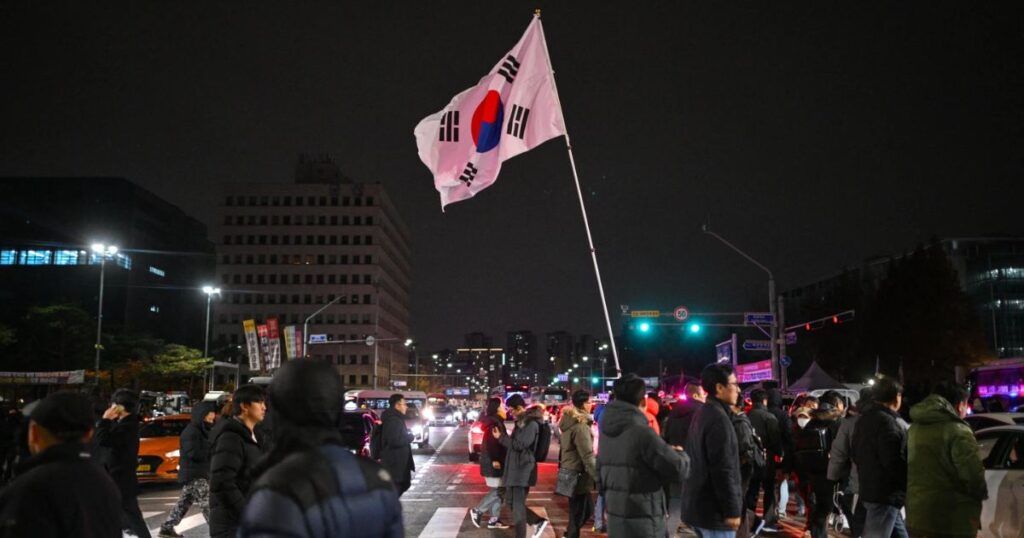
In South Korea, martial law historically represented a critical period of military-enforced governance during political upheavals and national security threats. The most significant instances occurred during the mid-20th century, particularly under authoritarian regimes that used military control to suppress civil liberties.
- Implemented during times of extreme political instability.
- Used to control public protests and political dissent.
- Enabled military leaders to override democratic processes and civilian rights.
Korea Declares Martial Law
In a dramatic response to escalating national tensions, Korea implemented martial law to stabilize its volatile political landscape. The military’s swift intervention aimed to control widespread unrest and prevent potential societal breakdown.
- Military commanders assumed direct control of civilian governance.
- Constitutional rights were temporarily suspended.
- Strict curfews and movement restrictions were immediately enforced.
Why Did South Korea’s President Declare Martial Law – And What Now? Martial Law
South Korea’s president might consider martial law during extreme national security threats, political upheaval, or massive civil unrest that threatens governmental stability. The declaration would aim to restore order and protect democratic institutions from potential internal or external challenges.
- Severe civil protests challenging government legitimacy.
- Imminent threat of regional military conflict.
- Breakdown of constitutional governance mechanisms.
How Did It All Unfold? Martial Law
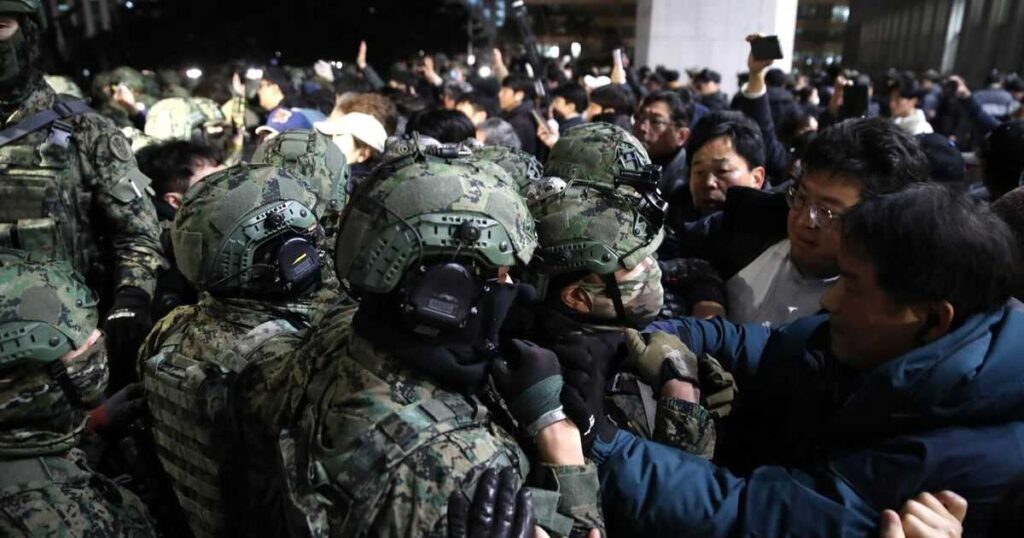
The intricate tapestry of events began with a subtle spark, gradually igniting a complex chain of circumstances that would reshape entire landscapes. What started as a whispered possibility soon erupted into a transformative journey of unexpected twists and profound revelations.
- Small, seemingly insignificant actions triggered a cascade of unprecedented consequences.
- Hidden connections emerged, linking disparate moments into a coherent narrative.
- Individual choices became the pivotal threads weaving a larger, more complex story of unfolding change.
How Significant Is Martial Law?
Martial law represents a critical governmental response to extreme national emergencies, transforming societal norms by replacing civilian rule with military control. Its significance lies in the profound ability to restore order, protect national security, and manage unprecedented crises through extraordinary measures.
Don’t miss to read out this blog: Marco Jansen
- Enables rapid, decisive action during critical national threats.
- Suspends legal frameworks to prioritize immediate security.
- Provides a powerful mechanism for governments to manage complex, dangerous situations.
Why Was Yoon Feeling Pressured? Martial Law
Yoon found himself trapped between mounting political expectations and intense internal party conflicts that threatened his leadership. The constant scrutiny from opposition groups and internal rivals created a pressure cooker environment that challenged his every political move.
- Competing internal party factions demanding radical changes.
- Public opinion polls show declining support.
- External political challenges questioning his policy decisions.
What Now? Martial Law
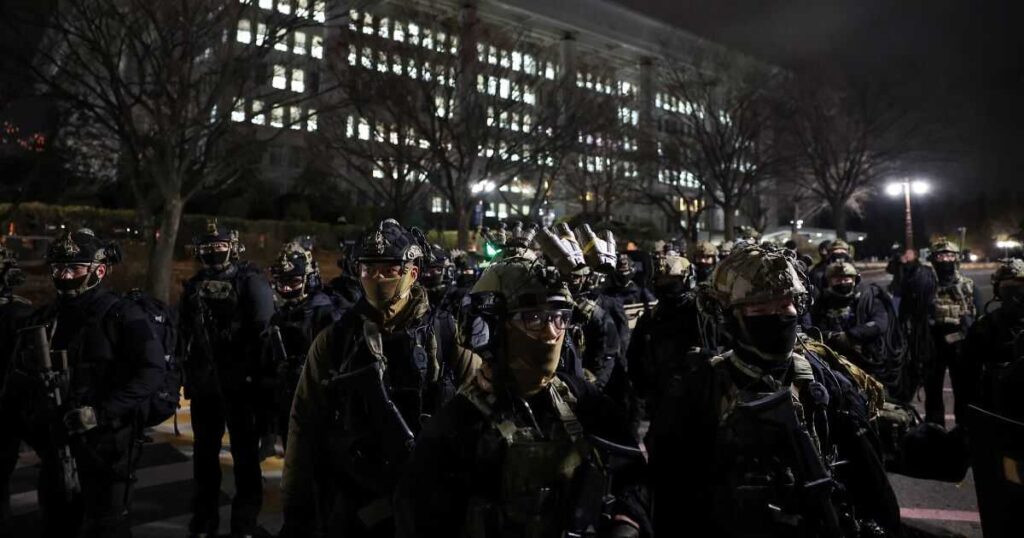
Life stands at a crossroads, where uncertainty meets potential, and every moment whispers of unexpected transformation. The path forward shimmers with both challenge and opportunity, inviting you to step boldly into the unknown.
- Embrace the present moment with courage and curiosity.
- Listen to your inner voice and trust your intuition.
- Take one small, meaningful action that moves you forward.
The South Korean President’s Martial Law Gamble Backfired: What Was He Thinking? Martial Law
In a bold yet catastrophic political maneuver, the South Korean president attempted to leverage martial law as a strategic control mechanism, dramatically underestimating public resistance and international scrutiny. His miscalculation not only eroded his political legitimacy but also triggered massive nationwide protests that ultimately exposed the fragility of his leadership.
- Public backlash overwhelmed the presidential administration’s control strategy.
- International diplomatic channels swiftly condemned the martial law declaration.
- The president’s political career suffered irreparable damage from the failed power grab.
South Korea Opposition Files Motion To Impeach Yoon Martial Law
South Korea’s political landscape erupted with tension as opposition leaders boldly filed an impeachment motion against President Yoon Suk Yeol. The dramatic move signals deepening political divisions and escalating power struggles within the nation’s legislative arena.
- Opposition parties accuse Yoon of abuse of power and constitutional violations.
- Impeachment motion challenges the president’s leadership and governance.
- The political conflict reflects ongoing struggles between rival political factions.
Yoon Suk Yeol, South Korea’s Scandal-Hit President Who Declared Martial Law
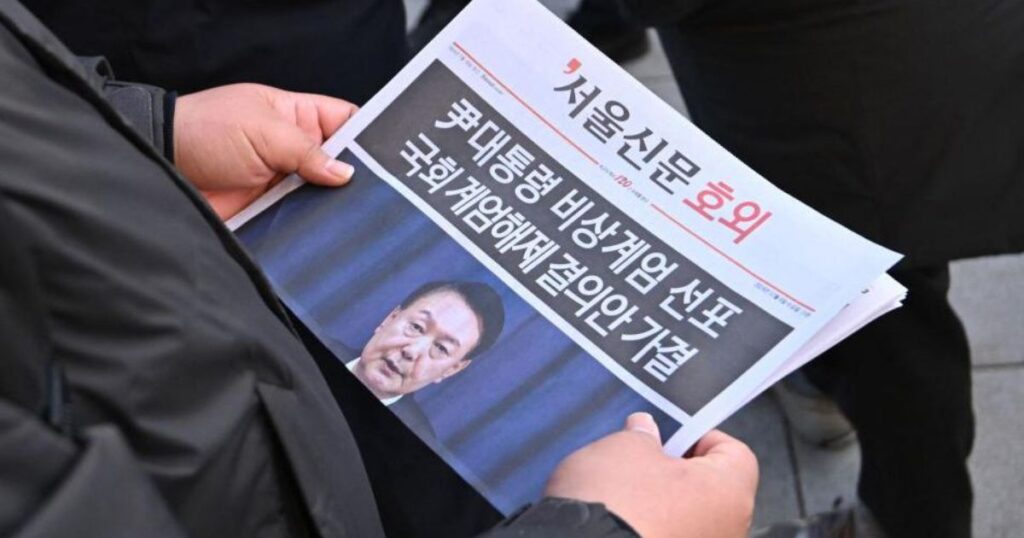
Yoon Suk Yeol, South Korea’s embattled president, navigated a political minefield of scandal and controversy. His leadership became synonymous with unprecedented political turbulence and public distrust.
- Faced multiple corruption allegations threatening his political standing.
- Implemented controversial presidential actions eroding public confidence.
- Martial law declaration marked a critical turning point in his tumultuous presidency.
‘Deeply Disturbed’: South Koreans React To President Yoon’s Martial Law Order
South Korea erupted in shock and dismay as President Yoon’s martial law declaration sent tremors through the nation’s democratic foundations. Citizens watched in disbelief as constitutional norms crumbled beneath unprecedented presidential overreach.
Read This Blog: Is Lanear Tech Expensive
- Mass protests erupted nationwide.
- Public outcry flooded social media platforms.
- Democratic freedoms appeared under immediate threat.
‘It Feels Like A Coup D’état’ – Martial Law Chaos Sparks Worry In South Korea
South Korea plunged into political chaos as President Yoon’s martial law declaration shattered democratic expectations. Citizens reeled in disbelief, comparing the move to an unprecedented assault on national democratic principles.
- Protesters denounced the action as a potential coup attempt.
- Constitutional experts warned of dangerous democratic erosion.
- Public sentiment rapidly shifted toward massive resistance.
South Korean President Lifts Martial Law After MPs Block It
In a dramatic political reversal, South Korean President Yoon Suk Yeol retreated from his controversial martial law declaration after facing decisive parliamentary resistance. The unprecedented move exposed deep fractures within the nation’s political landscape.
- Parliamentary opposition swiftly challenged and effectively blocked the martial law order.
- Public pressure and institutional pushback forced presidential recalibration.
- The political crisis highlighted the resilience of South Korea’s democratic mechanisms.
BBC Reporter Sees Disbelief Among Seoul Protesters
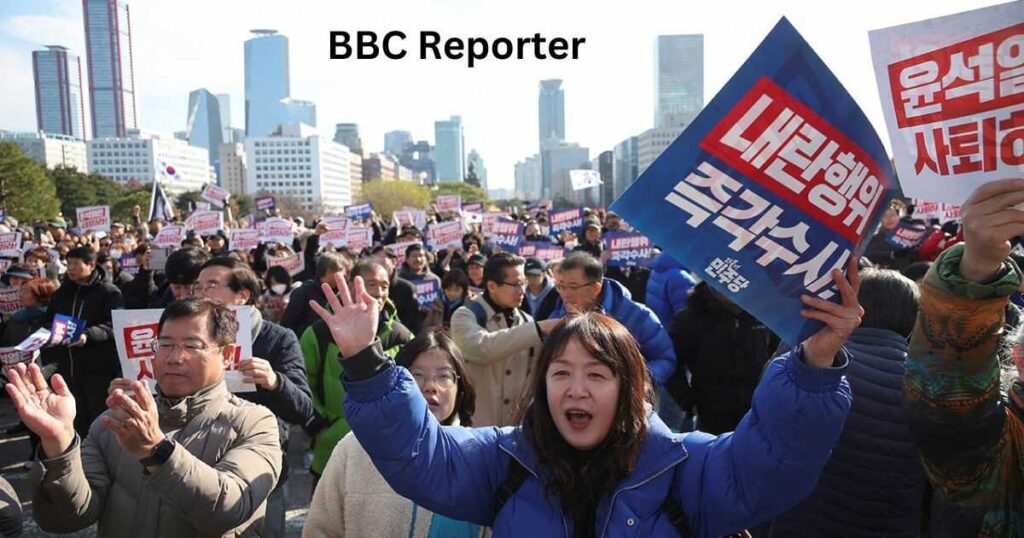
Seoul streets pulsed with raw emotion as protesters expressed profound disbelief and anger against presidential actions. Crowds gathered their collective sentiment a mixture of frustration and democratic defiance.
- Massive crowds filled central Seoul with passionate demonstrations.
- Protesters displayed shock and deep political disappointment.
- BBC reporters captured the intense atmosphere of public resistance.
Noisy Protests Against Martial Law Outside Parliament
Seoul’s political heart thundered with dissent as demonstrators roared their opposition outside the parliamentary building. Waves of protesters unleashed a cacophony of opposition against the government’s controversial martial law move.
- Protesters created a deafening soundscape of democratic resistance.
- The parliamentary precinct became a focal point of intense public anger.
- Demonstrators used noise as a powerful tool of political expression.
Conclusion
Martial law represents a critical juncture where governmental power supersedes standard constitutional protections. When implemented, it suspends normal civic freedoms and grants extraordinary authority to the military or executive branches.
Such extreme measures fundamentally challenge democratic principles, transforming the delicate balance between state control and individual liberties, often revealing deep underlying tensions within a nation’s political infrastructure.
FAQ’s
What Happens When The Martial Law Is Declared?
When martial law is declared, civil liberties are suspended, military authorities assume control and normal legal procedures are replaced by strict military governance.
Has The Us Ever Been In Martial Law?
The US has rarely imposed martial law, with limited instances during civil unrest, wartime emergencies, and localized crises.
What Happens To Prisoners If Martial Law Is Declared?
During martial law, prisoners may face restricted movement, suspended legal rights, potential military tribunals, and heightened surveillance within detention facilities.
What Qualified Martial Law?
Martial law occurs when military authorities take control during extreme national emergencies, suspending normal civil liberties to maintain public order and national security.
What Happens When Court Martial?
During a court-martial, military personnel are formally tried for serious offenses, facing potential military justice and punishment under strict military legal procedures.


